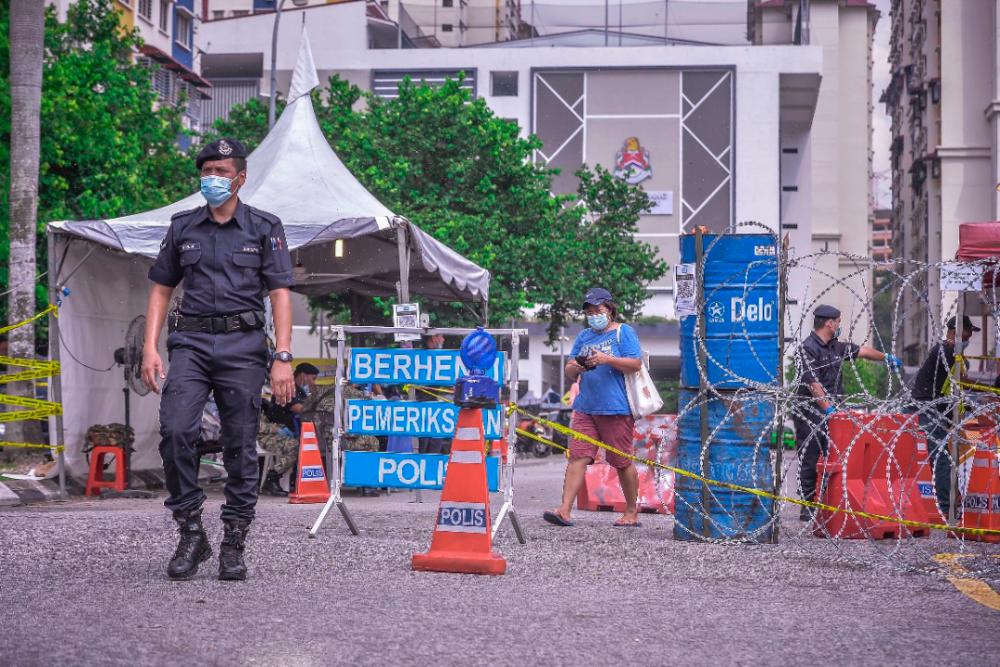PETALING JAYA: As the war against Covid-19 rages on, the views of experts and stakeholders continue to differ over the strategy.
Nonetheless, all are in favour of a change in varying degrees. For instance, a health expert said a full lockdown is still essential in the short term, but it will be necessary to ease restrictions selectively later.
On the other hand, businesses pointed out that the movement control order (MCO), now referred to as Phase One of the National Recovery Plan, has proven ineffective and therefore should be abandoned.
In the meantime, the number of infections continues to soar, with more than 5,000 cases reported each day, leaving the target of reducing the rate to below 4,000 per day for the easing of restrictions seemingly unattainable.
Universiti Malaya head of social and preventive medicine Dr Victor Hoe agrees that there is rationale in the call by several experts for a review of the strategy.
However, he said this should only be done after the rate of community transmission has been reduced to an acceptable level under a full lockdown.
“The problem with partial easing of restrictions is that people will immediately take the opportunity to travel to districts or states where businesses are allowed to operate in search of work and commercial activity,” Hoe said.
Before easing a nationwide lockdown into a more focused restriction, there is a need for tighter border controls to prevent mass movement of people from a high-risk area to a low-risk area, he added.
He agreed that a full lockdown is unnecessary in states such as Perlis, where only a handful of new cases have been reported in the last 14 days.
Galen Centre for Health and Social Policy founder and chief executive officer Azrul Mohd Khalib said a blanket lockdown was no longer effective.
“Targeted lockdowns are more focused and yield better results. Australia and the United Kingdom had adopted this approach earlier on (with a degree of success),” he told theSun.
“But in the longer term, humanity will have to learn to live with Covid-19 the same way we have done with the flu or influenza.”
Azrul said with the emergence of more variants, there will likely be a need for seasonal vaccinations, beyond the existing inoculation efforts.
“We must ensure that those who are vulnerable or older are not only included but prioritised in future vaccination programmes. Sanitary and good hygiene practices should also be maintained,” he added.
Meanwhile, the Malaysian Employers Federation (MEF) has expressed opposition to any type of restrictions.
Its executive director Datuk Shamsuddin Bardan said lockdowns only deprive employers and employees from generating revenue and income without addressing the Covid-19 problem.
“The government needs to come to terms with the fact that the lockdown has not yielded the desired results and therefore, the approach of a blanket national lockdown should not be continued.”
He proposed that employers be allowed to resume operations on the condition that they fully comply with the established standard operating procedures (SOP).
“The fight against Covid-19 is not about implementing a full lockdown as it hurts employers, employees, the rakyat and the nation. As it is now, the nation is losing RM1 billion for every day of the lockdown and Malaysia can no longer absorb such huge losses,” he said.
MEF is of the view that “if the full lockdown is prolonged, more businesses will close down and more employees will lose their jobs, making it even harder for the Malaysian economy to recover”.
“Many companies are failing on a daily basis and thousands are on the brink of bankruptcy, which will lead to more damage to the economy, businesses and employment.”









